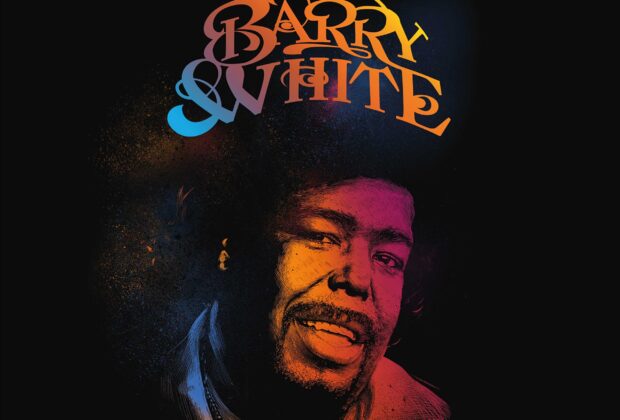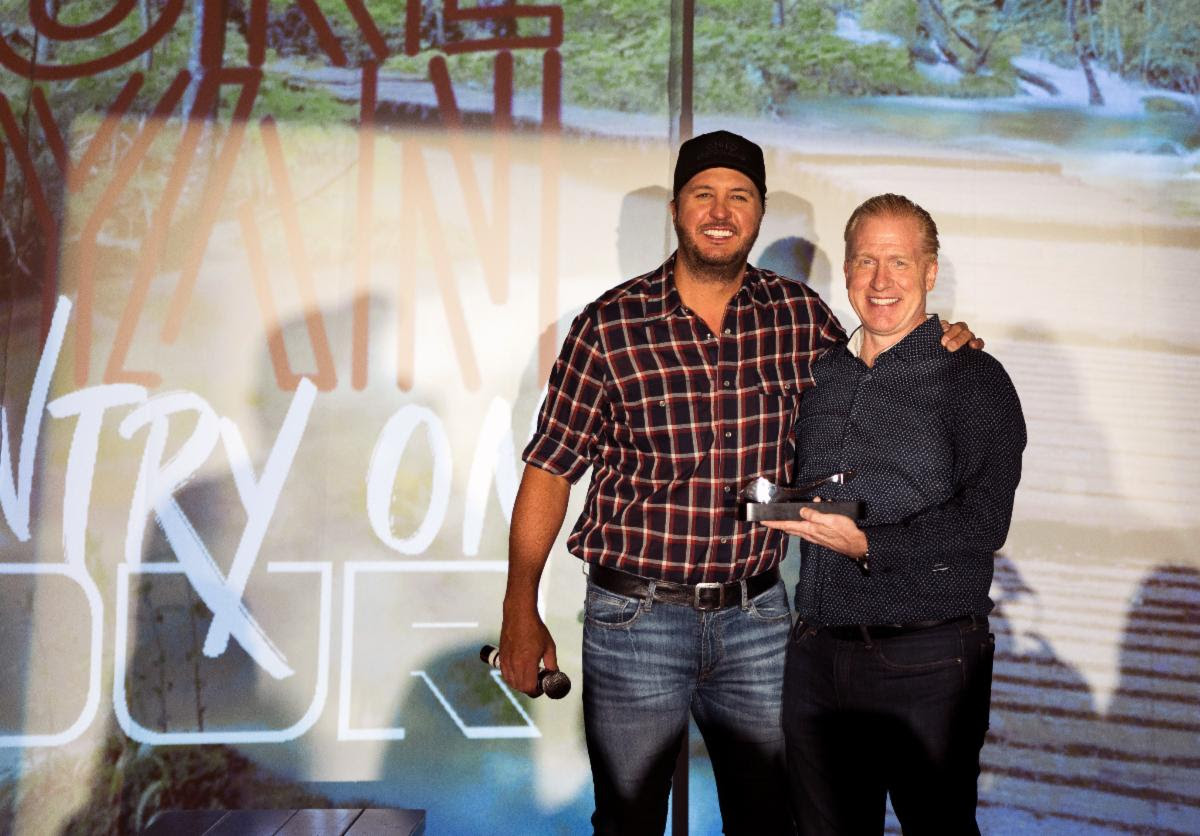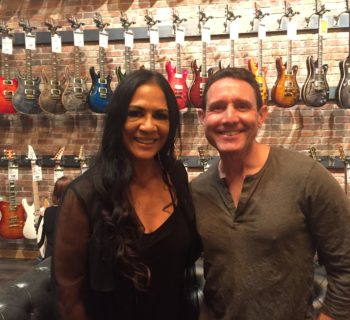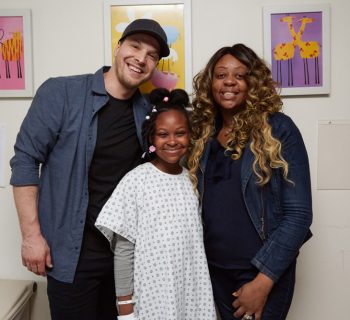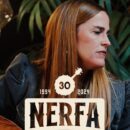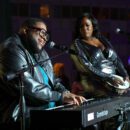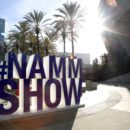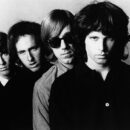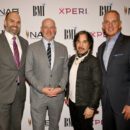Barry White: An Appreciation of a Rocker and Disco Icon
From his hitmaking '70s heyday until his untimely passing in 2003, Barry White set an unmatched standard for sexy, seductive, soulful R&B. As a vocalist, songwriter, producer and multi-instrumentalist, White created music that was unmatched in its sonic and romantic intensity, highlighted by lush, widescreen arrangements and the artist's deep, dark baritone voice.
Over the course of his remarkable career, two-time Grammy Award–winner Barry White scored 106 gold albums worldwide, with 41 of those attaining platinum status, along with 20 gold and 10 platinum singles, with worldwide record sales of over 100 million records. He remains one of the best-selling recording artists of all time.
In spring 2018, Mercury Records/UMe released the first of a series of catalog releases of Barry White's classic work, in a yearlong celebration of the 45th anniversary of White's first release on 20th Century Records. These collections feature such White solo hits as “Can't Get Enough Of Your Love, Babe” and “You're The First, The Last, My Everything,” along with hits by female trio Love Unlimited ("Walkin' In The Rain With The One I Love," "I Belong To You") and the 40-piece Love Unlimited Orchestra ("Love's Theme," "Satin Soul"), both of which benefitted from White's distinctive songwriting and production skills.
20 years after his passing expect the Barry White renaissance to continue.
In my 2014 book Turn Up The Radio Rock, Pop and Roll in Los Angeles 1956-1972 published by Santa Monica Press, I examined and presented the saga of Barry White as the concluding chapter in my endeavor.
People seem to forget or were never even aware of White's regional rock 'n' roll roots planted in the melodic soil of Los Angeles from 1960-1970. This is an era before we heard that unique voice on the AM and FM radio dial, or witnessed his landmark booking on Soul Train fronting a live orchestra.
All these "Death to Disco" scribes over the last few decades really missed the boat on a cat who was an R&B and rock 'n' roll force much more than they ever realized.
From 1975-1990 I had a few encounters with Barry. I once conducted an interview with him for Melody Maker before he embarked on a tour in England and Europe.
I attended the recording session for "Can't Get Enough Of Your Love, Babe" at MCA/Whitney studios in Glendale, and was mesmerized by his command of the assembled musicians. It was a catered date. Barry and I devoured racks of beef and pork ribs. I became a vegetarian for a year after that noshfest.
On September 11, 1975, I sat with members of the Jackson 5 at his Greek Theater debut in Los Angekes. Barry, Tito Jackson and myself were all products of the Los Angeles public school system. The Maestro was finally being worshipped on Vermont Ave. It was a long overdue homecoming...
Pianist, composer, and producer Barry White was a symphony of vibrant contrasts: a great ebony hulk who moved with a sumo’s grace; a basso profundo who uttered sweet nothings; a hugely popular and critical success who has been, if not lost, certainly misplaced over the years in the hearts and minds of his countrymen. With apologies to Clarence Clemons, Barry White was the original “big man.”
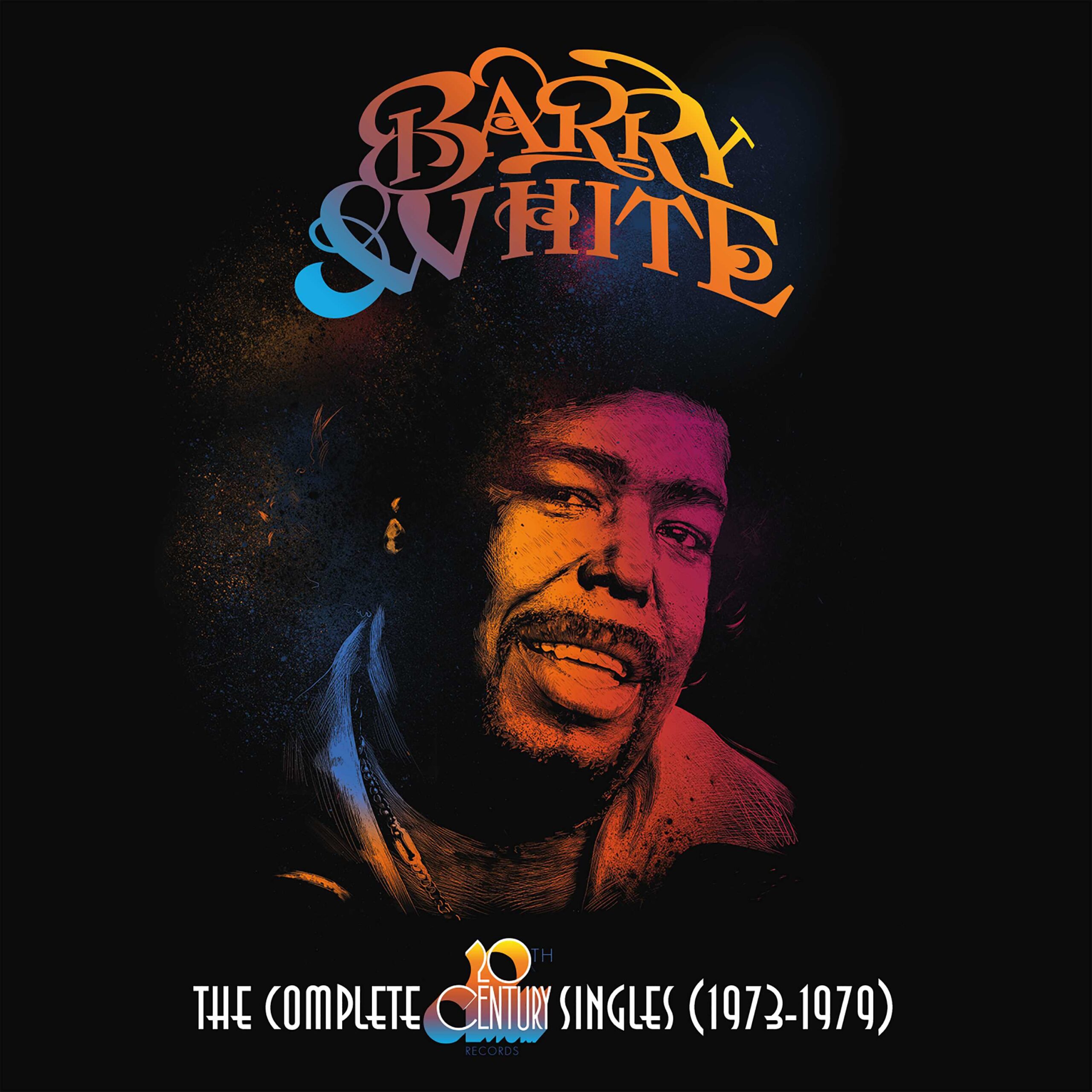
He was born Barry Eugene Carter in Galveston, Texas on September 12, 1944. His family relocated to the Watts area of Los Angeles when he was six months old. He displayed an aptitude for music at an early age, picking melodies at the piano while listening to his mother’s favorite classical composers.
Hunter Hancock’s Harlematinee show on radio stations KFVD and KPOP were part of his ear training. In 1956, the eleven-year-old White reportedly attended and played piano on the Jesse Belvin recording session that yielded the hit “Goodnight My Love.”
White’s teenage years were cast in iron; he ran with street gangs like the Slausens and the Businessmen, culminating with six months of jail time for car theft in 1960. At age 16 he stole Cadillac tires valued at over $25,000.00 As part of his penalty, and leaving gang life behind, White in 1959 poured cement that helped build the Los Angeles Sports Arena.
The experience only hardened his resolve to find salvation through his love of songwriting. At sixteen, he made his first record, “Little Girl,” singing harmony with the Upfronts for Lummtone Records. He was a member of two groups simultaneously, the Atlantics and the Majestics.
White played piano on Bob and Earl’s 1963 hit single, “Harlem Shuffle,” which he also co-arranged with Gene Page. In 1965, he went on the road as the drummer for Jackie “The Duck” Lee. White made his own recording debut in ’65 with “I Don’t Need It” for the local Los Angeles Downey label. Two years later, he was cutting sides for the Del-Fi, Bronco, and Mustang labels.
In the summer of 1966, Del-Fi owner Bob Keane hired White as an A&R man. White helped Keane produce the Bobby Fuller Four’s “The Magic Touch” and “I’m a Lucky Guy” at their Hollywood studio. White also worked on a single with the Versatiles, who later became the 5th Dimension. He then produced “Lost Without the Love of My Guy” for Viola Willis. White, Bob Keane and Gene Page also produced a soul album for Danny Wagner on the Imperial label. White subsequently recorded his own version of the Mac Davis-written Elvis Presley standard, “In the Ghetto,” under the name Gene West on Art Laboe’s Original Sound. White became a recording artist on Eddie Davis’s Faro label, receiving local airplay with “Tracy.”
It was arranger Gene Page who helped White’s musical education the most, letting him hang around and sit in on Motown sessions. Some of those mixing and orchestral techniques that White observed evolved into his seventies-era musical persona. With Keane and White’s spiritual advisor/friend, Larry Nunes, White then cut three singles on the Mustang label with a female trio. One of them, “It May Be Winter Outside (But in My Heart It’s Spring),” co-written with Paul Politi, featured Felice Taylor’s vocals, and was a crossover hit in the US and on the Billboard Top 50.
Another White and Politi composition for Taylor, “I Feel Love Comin’ On,” with an arrangement from Page, was nearly a Top 10 UK singles chart entry and spun in rotation on John Peel’s BBC Radio One Top Gear program in October 1967.
In September 1968, White appeared as a background vocalist on Jackie DeShannon’s Laurel Canyon album on Liberty Records, and also wrote “I Got My Reason,” which he later sang with DeShannon on the 1969 Hugh Hefner-hosted television show Playboy After Dark.
Larry Nunes was a major player in L.A.’s record distribution business. A key rack jobber, Nunes started the Tip Top company in 1949, then partnered with Monroe Goodman. In 1969, he sold the operation to Transcontinental Music Corporation. Nunes formed Soul Unlimited, Inc., which worked closely with White to guide his career.
It was Nunes who made the fateful introduction of White to veteran record label executive Russ Regan, who was heading Uni/MCA Records at the time. Along with Gene Page, they collectively scored the million-selling “Walkin’ in the Rain (With the One I Love)” with Love Unlimited (Glodean James, Linda James, and Diane Taylor) for the Uni label.
During his remarkable career, Regan had worked for Motown Records during 1961-1963, given the Beach Boys their name, and as a VP and head of A&R for MCA/UNI Records, signed Elton John for North American territories, inked Neil Diamond and Olivia Newton-John to the label, and helped secure the American Grafitti soundtrack for the company. During the first part of the seventies Regan helmed 20th Century Fox Records and brought the Alan Parsons Project and Barry White to the label.
RUSS REGAN: Rick Frio at UNI/MCA was my sales manager, and Larry Nunes was a big rack jobber. Larry knew me, but he called Rick because he felt he couldn’t get to me for some crazy reason. Larry brought “Walkin’ in the Rain” to Rick, and he buzzed me on the intercom. “I’ve got a record over here you ought to hear.” So he came to my office, and I bought it in four minutes flat. I had never heard a record like that in my life. His voice blew my mind, and the girls were great on it. It came out on UNI and went to number one on the R & B charts. Top 10 pop. Number fourteen in the UK in July of 1972. We sold a million records.
I left UNI Records on July 6, 1972, because I wasn’t being treated right. I was then asked to run the new 20th Century Fox record label. I got a phone call from Barry. I said, “Barry, I didn’t even know you could sing.” So he came over to see me and said, “Russ. I can sing, and I want to make an album.” “Okay. I’m the president of the company. What’s it gonna cost to make this album?” He said, “Forty-seven thousand dollars.” So I said, “You got it. No problem. Go make me an album.” So the first record he brought me out of the studio was “I’m Gonna Love You Just a Little More Baby.” His album, I’ve Got So Much to Give, went platinum.
Barry White is one of a kind. Have you ever heard a voice like that? The other thing I told him when we did the deal [was], “When you go platinum, Barry, I’m going to tear this agreement up and we will sign the agreement your lawyer wanted.” That’s exactly what happened. I had support at the label. I saw the impact when he played live. I gave him everything. He had self-confidence.
The magic elements to Barry White’s songs are great melodies and simple lyrics. They are not complicated songs.
DON PEAKE: I first met Barry at Gold Star, and he asked me to play on a song—“Until You Were Gone” by Brendetta Davis. Barry then said, “Don. I want you on all my records.” Maybe 1967, ’68. I knew he was a monster back then.
Barry White learned a lot watching Motown sessions and arranger Gene Page. Some of us on the Jackson 5 sessions became part of the nucleus on the early and mid-seventies Barry sessions. He knew what he wanted. Then he got his Love Unlimited thing happening, and I played on all those. He was really good about talking to us. We just played well together, and we knew each other well. Me, guitarists Dean Parks, Ray Parker Jr., David T. Walker, Wah-Wah Watson, Wilton Felder of the Crusaders, drummer Ed Greene, Gary Coleman on percussion . . . Barry would play keys, or someone else, but he would come in and Gene Page would have done some sort of rhythm chart at the Whitney studio in Glendale or ABC Studios.
These are different guys, because it’s an R & B date. Barry would say something, give a direction to someone like Wah-Wah Watson—then over to David Walker, say something and David would do it, and then over to me. “Don, give me the gallop. Bump. Bump.” The dancing would fit. Barry was a very hands-on—come right up to your music stand and sing to you, [or] bring us over to the piano. They were longer recordings than the session guys on the Spector, Bono, and Wilson sessions. I can’t explain why it worked on the radio and sold millions of records, except the grooves we were laying down were incredible. You can’t help but tap your toe to those things.
On Barry’s records and the Jackson 5 sessions, the guitarists were up front. We were not buried in the mix. There were hard grooves. That was Barry talkin’ to us. Barry knew in his head what he wanted. He’d usually start with the drums, and he helped the rhythm section all the time. He also would walk in the studio with one-hundred-dollar bills, and walk around and put a hundred bucks on each music stand as he was going around the room. I never thought of his music as sexual. I thought it was love music."
From 1972 to 1978, White’s aural odyssey dominated the charts, the clubs, the dance floor, and the bedroom. “Love’s Theme” went number one on the Billboard Hot 100. It was also used as the interstitial music to introduce Million Dollar Movie, an afternoon daily film program hosted by Ted Meyers on Channel 9—a childhood dream of White’s fulfilled.
DAVID RITZ: I love BW. But you kind of have to understand him in the context of Issac Hayes and Curtis Mayfield and Marvin [Gaye] and the orchestration of soul music, when Motown finally had the money to hire fiddlers. His genes were really Holland-Dozier-Holland, who really upped the ante by getting the little Jewish violin player from the Detroit orchestra into Motown. BW heard all that, loved it, and he hooked up with Gene Page.
Page is the key to Barry White orchestrations. He could read and write music, and BW couldn’t. BW heard it all—he heard all the lines, he heard four different guitar parts, and he called it out to Gene Page, and Gene wrote it down. In a nutshell, it’s Hollywood R &B, beautifully extravagant strings and ornate charts unafraid to be adorned. He was the king of beautiful schmaltz."
In a 1976 interview with me for Melody Maker at his spacious home in Encino, White and I talked for many hours. We watched one of our favorite movies, The Invaders from Mars, a sci-fi classic, after we both confessed we had screen crushes on the lead actress, Hillary Brooke.
Barry's favorite record was “Earth Angel” by the Penguins. Around the August 1965 Watts riots, he had witnessed his friend, Charles Fizer of the Olympics, get his head shot off on the way to a group rehearsal.
A decade later, Barry specifically explained why, since 1972, his music and disco in general had been so popular. “Let me tell you something," he said. “In the disco world, the audience is the star.”
In 2013, White was posthumously awarded a star on the Hollywood Walk of Fame.
Harvey Kubernik is the author of 20 books, including 2009’s Canyon Of Dreams: The Magic And The Music Of Laurel Canyon and 2014’s Turn Up The Radio! Rock, Pop and Roll In Los Angeles 1956-1972. Sterling/Barnes and Noble in 2018 published Harvey and Kenneth Kubernik’s The Story Of The Band: From Big Pink To The Last Waltz. In2021 they wrote Jimi Hendrix: Voodoo Child for Sterling/Barnes and Noble. Otherworld Cottage Industries in 2020 published Harvey’s Docs That Rock, Music That Matters.
Kubernik’s writings are in several book anthologies. Most notably, The Rolling Stone Book Of The Beats and Drinking With Bukowski. Harvey wrote the liner notes to the CD re-releases of Carole King’s Tapestry, The Essential Carole King, Allen Ginsberg’s Kaddish, Elvis Presley The ’68 Comeback Special, The Ramones’ End of the Century and Big Brother & the Holding Company Captured Live at The Monterey International Pop Festival.
During 2006 Harvey spoke at the special hearings initiated by The Library of Congress held in Hollywood, California, discussing archiving practices and audiotape preservation. In 2017 Kubernik appeared at the Rock and Roll Hall of Fame in Cleveland, Ohio, as part of their Distinguished Speakers Series.
Kubernik was lensed for the 2013 BBC-TV documentary on Bobby Womack Across 110th Street, directed by James Meycock. Bobby Womack, Ronnie Wood from the Rolling Stones, Regina Womack, Damon Albarn of Blur/the Gorillaz, and Antonio Vargas are spotlighted.
Harvey was a featured talking head in director Matthew O’Casey’s 2012 Queen at 40 documentary broadcast on BBC Television and released as a DVD Queen: Days Of Our Lives in 2014 via Eagle Rock Entertainment.
During 2014, filmmaker O’Casey interviewed Harvey in his BBC-TV documentary on singer Meat Loaf, titled Meat Loaf; In and Out of Hell, broadcast in the US market in 2016 on the Showtime Cable TV channel.
In 2019, Kubernik was an on-screen interview subject for director O’Casey on his BBC4-TV digital arts channel Christine McVie, Fleetwood Mac’s Songbird. The cast includes Christine McVie, Stan Webb of Chicken Shack, Mick Fleetwood, Stevie Nicks, John McVie, Christine’s family members, Heart’s Nancy Wilson, Mike Campbell, and Neil Finn.

